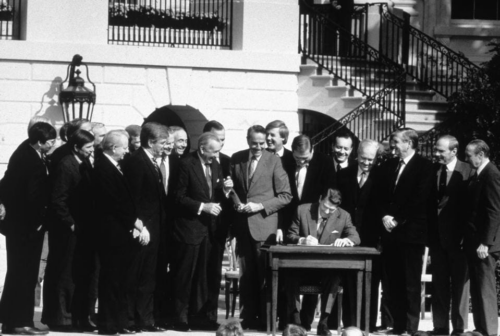RealClearPolicy: Nuclear Innovation Can Support Growth and a Healthy Climate
05.25.2016
Amid mounting public concern about climate change, many progressives are giving nuclear energy another look. It’s already America’s biggest source of zero-carbon energy, far surpassing wind and solar. And “next generation” reactor technologies hold great promise for generating nuclear power in safer, cleaner, and cheaper ways.
What’s more, America will need more nuclear energy to meet the ambitious greenhouse gas reduction targets President Obama set at last year’s Paris climate summit. According to the White House: “As America leads the global transition to a low-carbon economy, the continued development of new and advanced nuclear technologies along with support for currently operating nuclear power plants is an important component of our clean energy strategy.”
Nuclear energy today accounts for nearly 11 percent of the world’s electricity. Without it, the world produce an additional 2.5 billion metric tons of carbon dioxide per year. Here in the United States, nuclear energy generates 19 percent of our electricity — 63 percent of all zero-carbon electricity in America. The United States as well as developing countries such as China and India will need more nuclear power to meet growing energy demand without loading more carbon into the earth’s atmosphere. But we’re heading in the opposite direction — decreasing more nuclear capacity than we are adding.
U.S. nuclear companies intend to add five more reactors to the nation’s fleet by 2020. In the meantime, however, they have announced plans to shut down three existing plants — and more may be in the offing. Why so many closures? One of the main reasons is the glut of cheap natural gas stemming from America’s shale boom. Natural gas typically sets the price of electricity on the grid in much of the United States. Today, with natural gas trading on the spot market at around two dollars per BTU, nuclear-generated power is being priced out of electricity markets.
Continue reading at RealClearPolicy.





